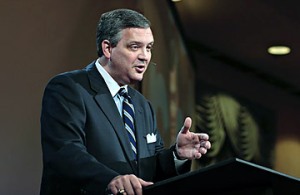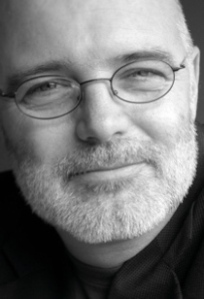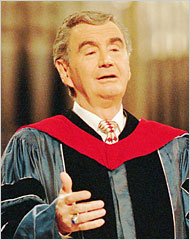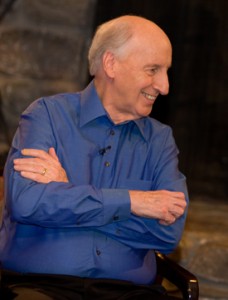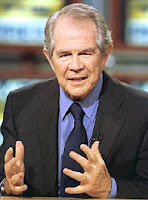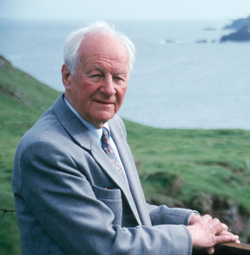50 leaders of the evangelical generation: #20 Al Mohler. Denominational whip.
[I am working on a project that may become a book on the most influential evangelicals leaders of our generation, since 1976, and the impact they’ve had on the church and their times. I will introduce them briefly on this blog from time to time. Who should be on this list?]
#20 R. Albert Mohler, Jr. Denominational whip b.1959
Because it is the largest Protestant denomination in the world, actions by the Southern Baptist Convention (SBC) attract significant attention, and few people interested in matters of faith are neutral in their opinions of the SBC. With the current position of the SBC as a solidly conservative bastion within evangelicalism, it requires a 20-year journey to the early 1990’s to observe an interdenominational fight that almost thoroughly ousted leaders of the SBC who had begun to toy with more liberal theological positions. Through the election of conservatives at the national level, Southern Baptists initiated a process to return the denomination to traditional teachings
In that war for orthodoxy, R. Albert Mohler became a five-star general, leading first a cleansing of Southern Baptist Theological Seminary in Louisville, where he became president in 1993, and then joining like-minded conservatives to realign the denomination as a whole. Paige Patterson, former SBC president and also a seminary president, said that Mohler’s presidency at Southern—the denomination’s flagship institution—corrected theological leanings in the SBC. “Al Mohler has the brains of Erasmus and the courage of Luther,” Patterson said at the time.
Shortly after his term as president began, Mohler drafted a policy (which was ratified by the trustees) that the Seminary would only hire professors who agreed to sign an Abstract of (theological) Principles (many professors had moved away from the tradition of Biblical inerrancy). Those who refused to sign were dismissed or resigned, which was approximately 75 percent of the faculty. During the two-year period after this policy was implemented, more than 50 percent of the student body transferred out of Southern Seminary to other academic institutions.
The fall-off in enrollment was short-lived and by 2006 Southern Seminary saw the largest enrollment in its history, and the institution is now one of the most endowed and largest seminaries in the world.
Mohler was also instrumental in the mid-1990s restructuring of the Southern Baptist Convention, which saw an increase in the influence of conservatives. After the restructuring had occurred, Mohler and others sought to enforce these doctrinal changes through the adoption of a revised Baptist Faith and Message in 2000.
Today, Mohler– who Time magazine called the “reigning intellectual of the evangelical movement in the U.S.”.[1]—has the most powerful religious blog in the country, and he has a popular daily radio program syndicated by Salem Radio Network.
Mohler is in the middle of what may be his next theological battle: Southern seminary has become a Reformed hotbed, part of a trend in many of the leading evangelical seminaries. This surge of Reformed theology has divided Southern Baptist churches and raised questions about the doctrinal direction of the denomination. A LifeWay Research study released in 2009 reported about 10 percent of Southern Baptist pastors identified themselves as Calvinist, but that number is increasing. Twenty-nine percent of recent SBC seminary graduates espoused Calvinist doctrine.[2]
Mohler writes, “Calvinism was the mainstream tradition in the Southern Baptist Convention until the turn of the century. The rise of modern notions of individual liberty and the general spirit of the age have led to an accommodation of historic doctrines in some circles.”[3]
With the majority of Southern Baptist pastors preaching Arminianism and the seminaries becoming more Reformed, it’s too early to tell who is going to prevail in this doctrinal split. But if Southern Baptists allowed any kind of gambling, the good money would be on Al Mohler’s team.
Al Mohler is a native of Lakeland, Florida. He attended received a B. A. from Samford University, a Baptist college in Birmingham, Alabama. His graduate degrees, a Master of Divinity and Ph.D. in “Systematic and Historical Theology,” were conferred by Southern Seminary.
In addition to his position as president, Mohler also serves as Professor of Christian Theology at Southern. His writings have been published throughout the United States and Europe. He has contributed to several books including Hell Under Fire: Modern Scholarship Reinvents Eternal Punishment, Here We Stand: A Call From Confessing Evangelicals and The Coming Evangelical Crisis. He served as General Editor of The Gods of the Age or the God of the Ages: Essays by Carl F. H. Henry and served from 1985 to 1993 as Associate Editor of Preaching, a journal for evangelical preachers. He currently serves as Editor-in-Chief of The Southern Baptist Journal of Theology.
[1][1] http://www.time.com/time/world/article/0,8599,443800,00.html
[2] http://www.bpnews.net/bpnews.asp?id=27181&ref=BPNews-RSSFeed0111
[3] http://reformedbaptistfellowship.wordpress.com/2009/03/23/southern-baptists-and-calvinists-a-response-to-elmer-towns-part-1/

